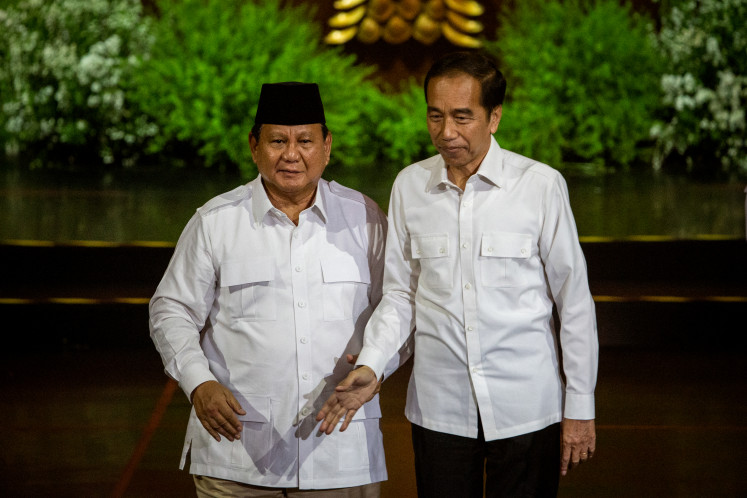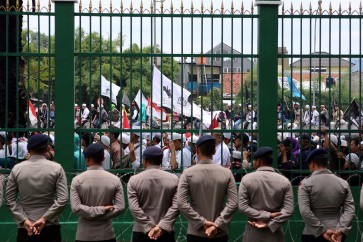Popular Reads
Top Results
Can't find what you're looking for?
View all search resultsPopular Reads
Top Results
Can't find what you're looking for?
View all search resultsUse of Blasphemy Law criminalizes minorities
The argument that the Blasphemy Law is necessary to mediate parties and decrease violence is at best unproven and at worst, the complete opposite of what is occurring in reality.
Change text size
Gift Premium Articles
to Anyone
T
he argument that the Blasphemy Law is necessary to mediate parties and decrease violence is at best unproven and at worst, the complete opposite of what is occurring in reality. Reports of violence from institutions such the Wahid Foundation and studies such as the National Violence Monitoring System (NVMS) indicate a steady and constant rise of religious violence in the past decade.
Data from the NVMS shows an average 31.7 percent increase of religious violence in Indonesia per year since 2003 until 2014, even when the usage of the Blasphemy Law within the same year range also increases.
What further solidifies the argument against the correlation of the law and decreasing violence is the fact that the bulk of religious violence (76.5 percent) actually occurred in 2011 to 2014, after the law attained nationwide notoriety on account of its judicial review in 2010. The Constitutional Court rejected requests to have it annulled and instead upheld the 1965 law.
However, the law does not just increase religious violence; it also contributes to transforming its nature. Owing its vaguely worded state and wrongly purposed nature, the law has allowed people to cloak their acts of violence under an elusive, seemingly just, form.
This is done in two ways; changing direct violence into seemingly more just structural violence, and skewing interreligious mediation, in which one expects fair results for both parties, with the threat of prosecution.
Last year’s data from Wahid’s religious freedom report shows a clear indicator of this first transformation. In 2014, direct violence, such as demolitions, expulsions, intimidation/threats, and coercions encompass 33.5 percent of state and non-state religious violence. In 2016, this number dwindled to 14.6 percent.
On the other hand, whereas criminalization only amounts to 9.7 percent of religious violence in 2014, it reached 16.2 percent of religious violence last year.


















